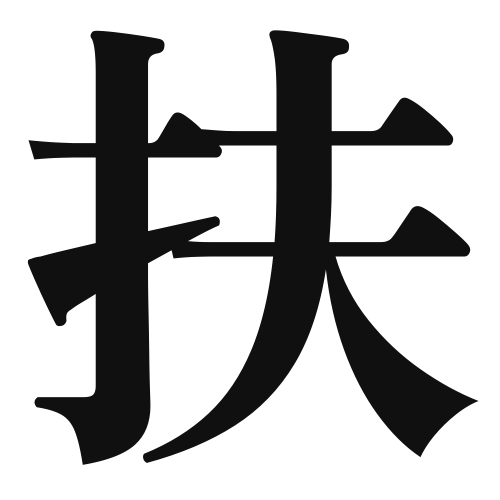1. Overview of Meaning
The kanji “扶” (fu) means “to support” or “to assist.” It conveys the idea of helping someone or something, often in a physical or metaphorical sense.
2. Formation and Radical
Formation of the Kanji: The kanji “扶” is a compound character that combines elements to convey its meaning. It consists of the radical “手” (hand), which indicates actions related to hands, and “夫” (husband), which adds a sense of support or partnership.
Radical: The radical of “扶” is “手” (shǒu), which is associated with actions performed by the hand, emphasizing the act of helping or supporting.
3. Examples of Usage
Common Words and Phrases: Some frequently used words that include “扶” are “扶養” (fuyou – to support or raise), “扶助” (fujo – assistance), and “扶持” (fuchi – support or backing).
Example Sentences in Daily Conversation:
- 彼はいつも友達を扶助している。 (He always supports his friends.)
- この制度は子供を扶養するために設けられた。 (This system was established to support children.)
4. Synonyms and Antonyms
Similar Kanji: A similar kanji is “助” (jo), which also means “to help” but often implies a more general form of assistance without the connotation of physical support.
Opposite Kanji: An antonym is “妨” (bou), which means “to hinder” or “to obstruct,” representing the opposite of support.
5. Cultural and Historical Background
Relation to Japanese Culture: The concept of “扶” is deeply rooted in Japanese culture, where supporting family and community members is highly valued. It reflects the importance of cooperation and mutual assistance in society.
Proverbs and Idioms: One relevant proverb is “助け合い” (tasukeai), which means “helping each other,” emphasizing the spirit of support and collaboration among people.
